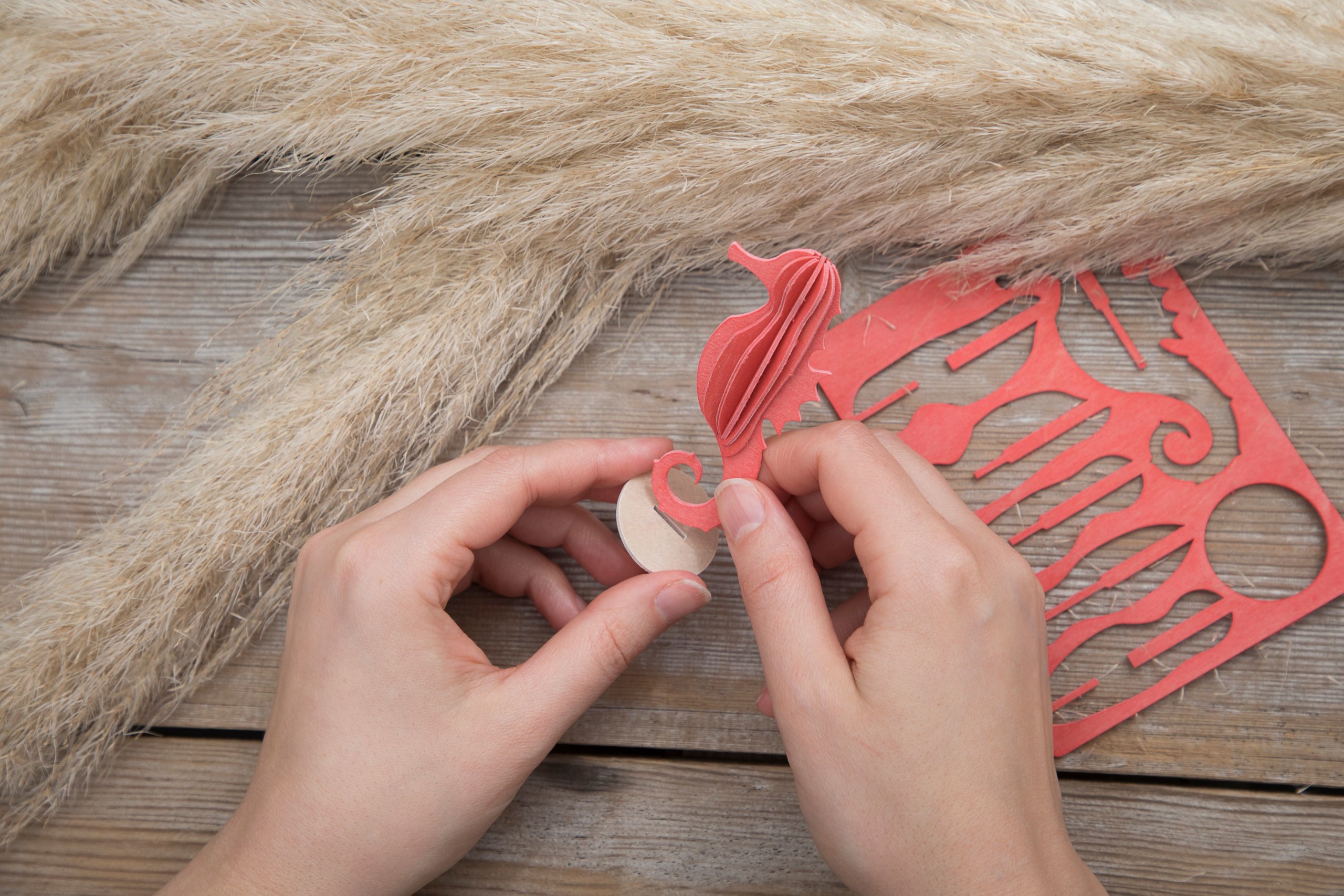
Wooden pieces fall into place at Lovi
At first glance it may be hard to believe the stroke of genius someone had. You start off with a flat package, a piece of plywood from which you detach carefully formed pieces. You then assemble them according to the instructions and, lo and behold, you are holding a jellyfish, Moominmamma or Christmas tree ornament made from Finnish birch.
Behind the simple but ingenious idea is Lovi, and above all the heart and soul of the company, industrial designer Anne Paso, who came up with the idea of replacing plastic Christmas tree baubles with wooden ones at the start of the new millennium. The idea gave birth to a modular Christmas tree bauble.“Even back then, I was concerned about many problems related to plastic, which we are thankfully more aware of today,” Paso says.
Lovi merges the practical, artistic and emotional
The first Lovi product came about when Anne Paso created the now-patented joints with which the wooden pieces can be slotted together easily and securely. Paso jumped in the deep end with the new product and took it to a Christmas market to test out her idea and see if there was demand for it. The products sold like hotcakes and Paso had to work all night to make more for the next day.
Over the years, the wooden Christmas tree decorations exhibited at the Christmas fair have been joined by a whole host of other shapes and figures, and Lovi’s customers have had a continuous supply of new insights and the joy of creating something by hand. The pleasure derived from the products does not end with assembling it; the finished product continues to delight year after year.
“We are proud of what we have achieved in terms of the concept and the final product. We had the courage to move ahead with the initial design,” Anne Paso says.
Eco-friendliness and quality are high on the list
Anne Paso’s spouse Mikko works alongside her and he is the co-owner and the CEO of the family-owned company. Mikko Paso is also in charge of the company’s figures, but he also works in the factory when he can get away.
Eco-friendliness is one of Lovi’s key values. The Pasos consider it important to participate, for instance, in solving the oceans’ plastic problem by avoiding unnecessary use of plastic. That is why Lovi’s consumer packaging has been plastic-fee since 2017. Lovi also donates some of its revenue to reforestation projects in the world’s arid, erosion and flood regions. Since 2009, the company has participated in the planting of 115,000 trees. Lovi’s colourful products are dyed by hand using the company’s own secret eco-friendly method.
Eco-friendliness is one reason why Lovi uses only Finnish birch for its products, namely thin plywood one to twelve millimetres thick from Koskisen, because only Koskisen supplies the quality required for Lovi’s detailed products.
Lovi’s products are highly detailed and the customer observes them from very close up when assembling them, using both touch and sight, accompanied by the scent of wood. Putting together a Lovi product is an experience that doesn’t leave room for flaws in the material. The Pasos point out that they very rarely have to deal with complaints related to the material. The most typical complaint is related to third-party processes, such as transport damage.
“In addition to quality, our collaboration is impacted by our personal relationships. We have received the best service. Our salesperson Raimo Kämppi meets with us regularly and things always move forward,” Mikko Paso says. “This excellent dialogue is precisely why we have been able to work things out together.”
The choice of material is also strongly linked to FSC certification, which Lovi selected for its products.
“We are really happy that Koskisen has adopted the certification. Nordic forests hold more wood than ever, but we need to work together to ensure diversity,” Anne Paso adds.
Lovi delights people around the world
Thanks to its simple packaging, the product is easy to send in Finland and anywhere else in the world. The family-owned company’s oldest and biggest customer is in Japan, bringing in up to a quarter of Lovi’s revenue. Of Lovi’s products, 90% head abroad through importers and direct retailers, but business-to-consumer trade has picked up especially during the Covid-19 pandemic.
“Almost all Western European countries are significant customers for us, especially France and Germany,” Mikko Paso points out. “Museums and museum shops are another important customer segment for us and our products can be found in many of the world’s most prominent museums.”
It isn’t hard to believe that Lovi’s products are popular gifts; people love the experience of making things by hand.
“Working with our hands is essential for our brains,” Anne Paso concludes.